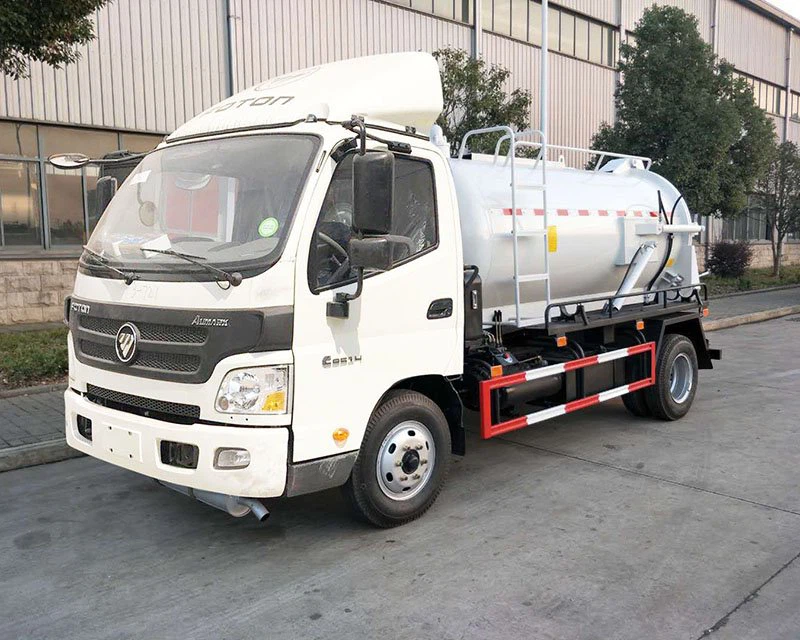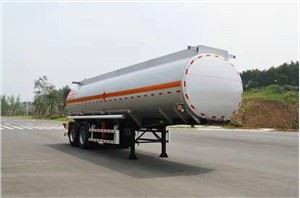Ultimate Guide to Truck Compactors: Everything You Need to Know

When it comes to waste management and recycling, efficiency is key. One crucial piece of equipment that enhances this efficiency is the truck compactor. This comprehensive guide will explore the ins and outs of truck compactors, including their types, benefits, operating principles, maintenance tips, and much more.
What is a Truck Compactor?
A truck compactor is a specialized type of waste collection vehicle designed to compress and compact waste materials. By reducing the volume of waste, truck compactors enable waste management companies to maximize their load capacity and minimize the number of trips needed to dispose of waste, ultimately saving time and resources.
Types of Truck Compactors
1. Front-Loading Compactors
Front-loading compactors are designed with a loading mechanism at the front. They are especially effective for commercial waste collection and can accommodate larger containers. These compactors are loaded by lifting and dumping bins directly into the container.
2. Rear-Loading Compactors

Rear-loading compactors are characterized by their rear-entry design. Waste is loaded from the back of the truck, making them ideal for residential collections and areas with limited access. They typically come equipped with hydraulic mechanisms to aid in compaction.
3. Side-Loading Compactors
Side-loading compactors feature an opening on one of the sides for loading waste. These trucks can operate in narrow streets or crowded urban environments. Their design facilitates high material compaction and increased payload capacity.
4. Automated Compactors
Automated compactors incorporate advanced technology to facilitate the loading and compaction processes. These systems often use sensors and robotics, allowing for efficient operations with minimal manual interventions.
Benefits of Using Truck Compactors
1. Increased Efficiency
Truck compactors optimize waste collection by compressing waste material on-site. This reduces the number of trips required to dispose of waste, allowing companies to serve more customers daily.
2. Cost Savings
By maximizing load capacity, truck compactors help save transportation costs associated with fuel, labor, and maintenance. This cost-effectiveness makes them a popular choice in the waste management industry.
3. Environmental Benefits
Efficient waste management contributes to environmental sustainability. By reducing the number of trips to landfill sites, truck compactors lower carbon emissions and help in minimizing the environmental footprint.
4. Enhanced Safety
Truck compactors are designed with safety features that mitigate worker-related hazards. Their automated systems and ergonomic designs reduce the risk of injuries that arise during manual waste collection and handling.
How Truck Compactors Work
Truck compactors operate using a hydraulic system to compress waste material. The compaction process involves the loading of waste into the compactor’s receiving chamber, followed by the activation of hydraulic presses that compact the waste against the container walls.
Compaction Process Steps
- Loading: Waste is loaded into the compactor through the designated opening.
- Compaction: Hydraulic mechanisms compress waste to minimize its volume.
- Transport: The compacted waste is transported to landfill or recycling facilities.
Hydraulic System Functionality
The hydraulic systems in truck compactors play a crucial role in the compaction process. They use a pump to pressurize hydraulic fluid, which powers cylinders that move the compactor plate forward and backward for effective compaction.
Applications of Truck Compactors
1. Municipal Waste Collection
Truck compactors are widely used for municipal solid waste collection, ensuring efficient management of residential and commercial waste.
2. Recycling Programs
Many recycling programs employ truck compactors to efficiently gather and transport recyclables, contributing to environmental sustainability.
3. Construction and Demolition Sites
In construction and demolition contexts, truck compactors are utilized to collect and minimize debris, allowing for safer and more organized job sites.
4. Industrial Applications
Industries producing large quantities of waste, such as manufacturing and food processing, benefit from truck compactors to streamline waste disposal operations.
Choosing the Right Truck Compactor
1. Evaluate Your Needs
Consider the volume and type of waste you handle. Choose a compactor that matches your operational requirements.
2. Check Load Capacity
Examine the truck compactor’s load capacity to ensure it can accommodate the waste volume in your specific applications.
3. Consider Maintenance and Service
Choose a truck compactor from a reputable manufacturer that offers service and maintenance support to keep your equipment operational.
4. Review Fuel Efficiency
Look for fuel-efficient models to minimize operational costs. Technology advancements have led to improvements in the fuel efficiency of many truck compactors.
Maintenance Tips for Truck Compactors
1. Regular Inspections
Schedule routine inspections to identify issues before they become significant problems. Look for hydraulic leaks, worn-out components, and any routine wear and tear.
2. Hydraulic System Care
Regularly check hydraulic fluid levels and quality. Change the fluid as necessary to ensure smooth operation.
3. Cleaning
Keep the compactor clean to prevent the buildup of waste material, which can hinder performance and lead to unpleasant odors.
4. Monitor Tires and Brakes
Inspect tires for wear and tear and check brake functionality regularly to ensure safe and reliable operations.
Future Trends in Truck Compaction Technology
1. Integration of Smart Technology
Emerging technologies, such as IoT (Internet of Things) devices, are enabling real-time data collection and analysis, improving operational efficiency in waste collection.
2. Enhanced Automation
Automation will continue to enhance efficiency and reduce labor costs in truck compaction, with advanced robotics playing a critical role in loading and unloading operations.
3. Electric and Hybrid Compactors
As environmental concerns grow, electric and hybrid truck compactors are becoming more popular, offering reduced emissions and improved fuel efficiency.
4. Advanced Compaction Methods
Research and development may introduce innovative compaction methods that further improve waste volume reduction, helping to advance sustainability goals.
FAQ about Truck Compactors
1. What is the average lifespan of a truck compactor?
The average lifespan of a truck compactor is typically 10 to 15 years, depending on usage and maintenance practices.
2. How much waste can a truck compactor carry?
The waste capacity of a truck compactor varies widely depending on its size and model, ranging from 10 to 30 cubic yards or more.
3. Are truck compactors suitable for hazardous waste?
Truck compactors are not generally designed for hazardous waste, as special protocols and equipment are necessary to handle such materials safely.

4. How do I find a reliable truck compactor service provider?
Research local service providers, read reviews, and ask for recommendations from other businesses to find a trustworthy truck compactor service provider.
5. Can truck compactors help reduce landfill waste?
Yes, by compaction, truck compactors reduce the number of trips required for waste disposal, thus potentially lowering the environmental impact associated with transporting waste.
6. What maintenance is required for a truck compactor?

Routine inspections, hydraulic fluid checks, cleaning, and brake and tire monitoring are essential maintenance tasks for truck compactors.
Conclusion
Truck compactors play a vital role in optimizing waste management practices. Understanding their types, benefits, operational principles, and maintenance protocols will help businesses and municipalities make informed decisions. By embracing advancements in compaction technology, we can look forward to a more efficient and sustainable future in waste management.
